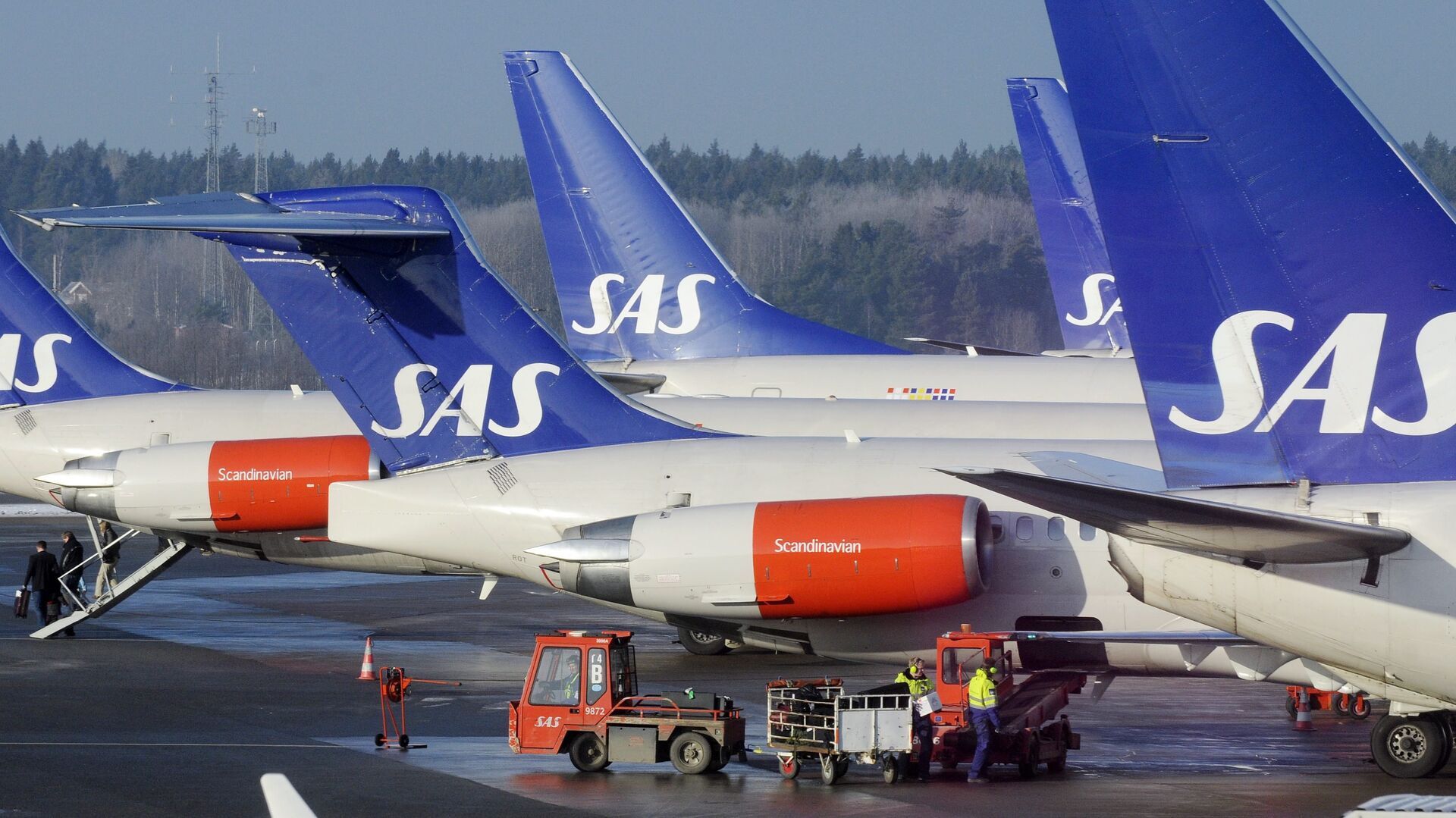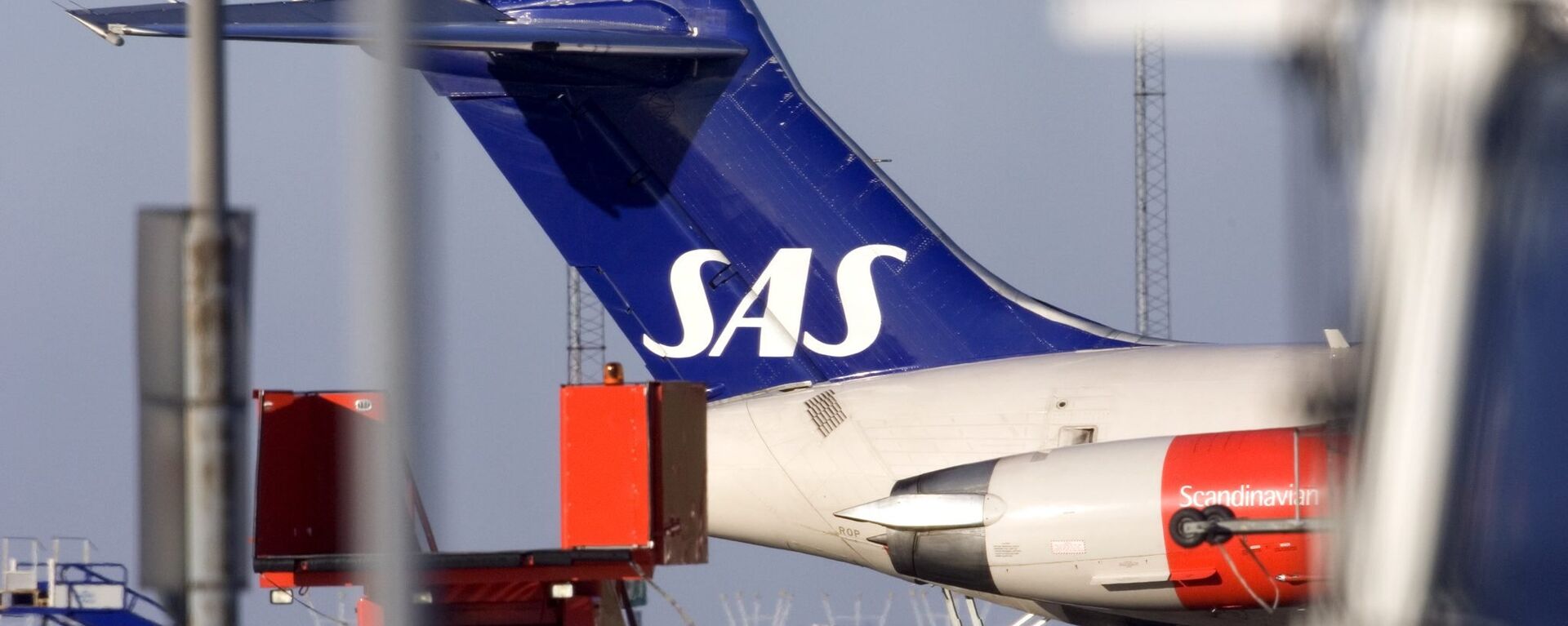Sweden Says No More Money for Crisis-Ridden SAS Airline
09:06 GMT 08.06.2022 (Updated: 13:55 GMT 06.08.2022)

© AP Photo / Johan Nilsson, SCANPIX
Subscribe
As of now, the Swedish and Danish states are the main owners of the Nordic flag carrier with 21.8 percent apiece. Sweden's plans to reduce its stake may pose extra challenges for Denmark and lead to privatisation of the airline, pundits have ventured.
The Swedish state will not give more money to the crisis-stricken airline SAS, the country's Trade and Industry Minister Karl-Petter Thorwaldsson has announced.
“We have supported SAS with SEK 8 billion [$810 million] for a limited period. Somewhere, the state has to draw a line and say that SAS can manage on the revenues. That's why we think it's fair. They can apply for capital in another way and other owners”, Thorwaldsen said, according to the daily Aftonbladet.
Furthermore, the Swedish state intends to reduce its stake in SAS, according to Thorwaldsson.
As of now, the Swedish and Danish states are the main owners of the Nordic flag carrier, with 21.8 percent each. Norway sold its share in 2018.
In recent years, both states have provided billions in support to the ailing airline, which has been plagued by financial difficulties, a loss of staff and legal problems. Most recently, SAS came under fire from pilot unions for low demands on the new hires in new subsidiaries it created to save money after sacking hundreds of experienced personnel. According to the unions, the low demands jeopardise aviation safety.
Danish TV2 financial commentator Ole Krohn called the news “a bomb under SAS's future plans”.
“Right now the Danish and Swedish states combined own just over 40 percent of the company. SAS has so far been a form of strategic investment, very important for Copenhagen Airport, but it is clear that when either of the two states withdraws, the whole foundation for the current ownership model will be shaken. This could be a step towards some form of privatisation of SAS,” Krohn said.
According to Krohn, the Danish state alone won't be able to fill Stockholm's shoes.
Similar thoughts have been voiced by Sydbank head of equity research and aviation expert Jacob Pedersen, who called the situation “a crossroads”.
“The common Nordic influence is a thing of the past. In reality, this means that the Danish ownership share will probably be weakened, because we won't be able to raise our share,” Pedersen told TV 2.
“The common Nordic influence is a thing of the past. In reality, this means that the Danish ownership share will probably be weakened, because we won't be able to raise our share,” Pedersen told TV 2.
In an attempt to save itself, SAS has developed a crisis plan called Forward, in which around SEK 20 billion (roughly $2 billion) in various types of loans and leasing agreements would be converted into share capital.
In addition, austerity measures are planned, including renegotiated collective agreements, which will slash annual costs by SEK 7.5 billion ($760 million) by 2026. Once this is in place, at least SEK 9.5 billion ($970 million) in capital contributions will be needed to invest in the future, according to the company.


